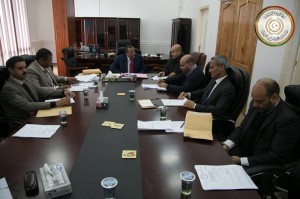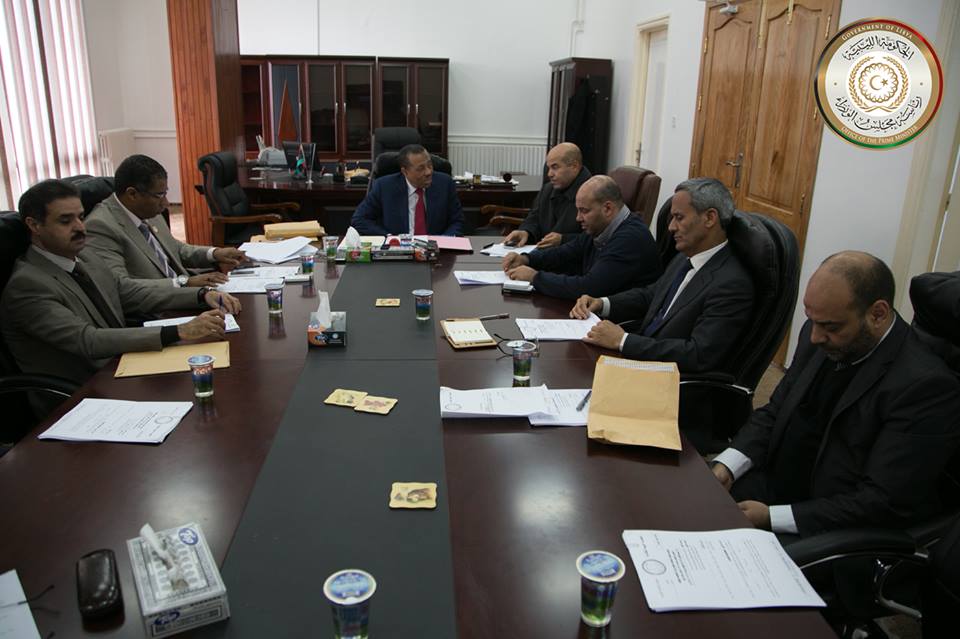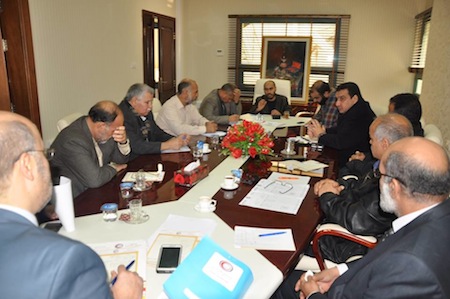By Hadi Fornaji.

Tripoli, 28 December 2014:
The government, faced with a yawning budget deficit, has agreed to liberalise the telecoms sector as a . . .[restrict]way of bringing in much needed cash, because of weak oil prices and plunging overseas sales.
At yesterday’s cabinet meeting, the Economy and Industry Minister, Muneer Ali Asr, proposed a range of revenue-raising measures, the most eye-catching of which was the opening up of the telecoms sector to foreign players, including privatising Libya Telecoms & Technology (LTT) and its affiliates. Approving the proposal, the cabinet asked the deputy prime minister in charge of government boards to draw up a basic plan to privatise the sector for its next meeting.
The UAE’s Zain has been long interested in entering the Libyan market, which is characterised by poor internet provision from LTT and unreliable mobile telephony from both Al Madar and Libyana. All three are state-owned enterprises.
Asr also proposed reducing overtime and bonus payments to state employees as well as a tightening up on the payment of salaries in the economically-dominant state sector. His ideas have been mirrored by the Central Bank of Libya which last week said that it was trying to clamp down on the payment of “ghost salaries” to government employees who were already being paid for their original job.
Asr suggested that the present budget be recast to take account of the 40 percent drop in oil prices, as well as the disruption caused exports by the serious damage to the 300,000 b/d oil export terminal at Sidra, the country’s largest largest such facility. He accepted that recalculating government expenditure on this basis would put pressure on the economy and citizens. As an alternative, he put forward the option that the government could wait for one or two months to see if the oil price stabilised and then reviewed the budget’s planned expenditure.
Some ministers revived the Zeidan government’s plan to phase out fuel subsidies, which only encouraged smuggling on an industrial scale, in return for raising support payments to individuals and families.
It was here that Asr pressed the diversification of state income with the granting of the likes of telecoms licences to outside telecoms and technology companies. He also outlined proposals for production, consumption and indirect taxation.
The main focus of the cabinet was however on the Libyan Dawn attacks against the eastern oil terminals. The cabinet backed prime minister Abdullah Al-Thinni’s plan for it to hold an urgent security meeting with the defence committee of the House of Representatives, along with the ministries of defence and interior, which would be chaired by the Libyan Army general staff.
Thinni urged minister of health Reda Al-Menshawi to give priority to the treatment of the wounded, both civilian and military and stressed the need for foodstuffs and social assistance to be given to those areas that have been affected by the fighting. [/restrict]









